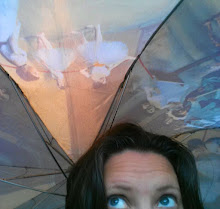My scientific journey is a shining example:
4th year Bachelor's research project: Determining how well circular pieces of DNA (plasmids) can enter a Salmonella mutant. (For those genetic savvy: the transformation efficiency into a recD mutant).
Personal relevance: I received my B.Sc. honours degree.
BIG PICTURE relevance: on a scale of 0 to 10? Negative eleventy eleven.
Masters' project: Developing a killing assay between human bacterial pathogens and tiny soil worms for a model.
Personal relevance: Killing worms got me a Masters in Genetics.
BIG PICTURE relevance: Yawn.
Doctoral project: Figuring out which genes are actually being affected by an envelope stress response in E. coli.
Personal relevance: I'm a doc! YUSH!
BIG PICTURE relevance: So you reorganized some genetic system in E. coli - wooo.
The irony is that I got into science with the idea that my research would count. Of course every science undergrad has the same idealism. I lost my innocence somewhere between my Bachelor's and Masters. But that did not deter me from continuing on with the Ph.D. for another 7 years. Maybe reality didn't set in quite yet. Anyways, my search for post-doc positions, I really wanted to find something that would be *really* relevant, really contribute, REALLY REALLY MATTER! This was one the key factors why I took my current posting: pneumococcal vaccine development. I knew from the start that even if I developed the vaccine, my name wouldn't be remembered at the end of the day. But at least I could say to people: oh you got that vaccine shot? Heh, I helped made it. Plus the idea that I could contribute to saving millions of strangers annually was nice to know, albeit it'll be still strangers.
That is until this month.
 I got a call from my Greek sister-in-law: my niece was in the hospital with pneumococcal meningitis, the exact same bad bug that I'm developing a vaccine against. First, I was highly worried about my niece, immediately took a 48h work leave to drive to another city just to "be" there for her, my Greek bro, and the rest of the family. While road tripping, it suddenly hit me: WHOA! My research matters! Like BIG PICTURE matters!
I got a call from my Greek sister-in-law: my niece was in the hospital with pneumococcal meningitis, the exact same bad bug that I'm developing a vaccine against. First, I was highly worried about my niece, immediately took a 48h work leave to drive to another city just to "be" there for her, my Greek bro, and the rest of the family. While road tripping, it suddenly hit me: WHOA! My research matters! Like BIG PICTURE matters! While at the hospital, watching my niece sleep (or try to, she was so uncomfortable and it's hard to console a 20 month old lil' tot), things were racing through my mind, wondering if I was even doing enough, was I doing things right? I've griped about the long hours I put in the lab. In fact my Greek brother has mentioned to me countless times "You work too hard". But this time he said, "Work faster."
36h later, I left the hospital with assurances that my niece's condition would improve. She was responding well to the heavy cocktails of antibiotics being administered and just before I left she was playing a little bit and smiling. Driving back, I found a new interest in the project. It wasn't that I was never interested in the project before this ordeal. Just that now, it was personal. My renewed interest wasn't just felt by me. My family (both biological and Greek) seems to be prouder that I am working on something that would prevent this happening to the family again. My bosses are highly more motivated for this project to succeed as the current pneumococcal vaccine isn't sufficient to protect all children* - hence the urgent need for a new vaccine.
It's nice working for the BIG PICTURE team.
My niece is now home and continues to improve. Now it's up to Thea Nanc and the rest of the Strepto Vaccine unit to get this vaccine off the lab bench and into the ampules for vaccine administration.
* I would like to emphasize that the current vaccines for pneumococcal meningitis are NOT defective. These vaccines as well as various others have saved millions of lives and continue to do so everyday. The limitation is that biological organisms have their quirky way of finding ways around road blocks we set up. This is the challenge that scientists work against always, the constant need to adapt, to learn, to improve.
It's nice working for the BIG PICTURE team.
My niece is now home and continues to improve. Now it's up to Thea Nanc and the rest of the Strepto Vaccine unit to get this vaccine off the lab bench and into the ampules for vaccine administration.
* I would like to emphasize that the current vaccines for pneumococcal meningitis are NOT defective. These vaccines as well as various others have saved millions of lives and continue to do so everyday. The limitation is that biological organisms have their quirky way of finding ways around road blocks we set up. This is the challenge that scientists work against always, the constant need to adapt, to learn, to improve.
